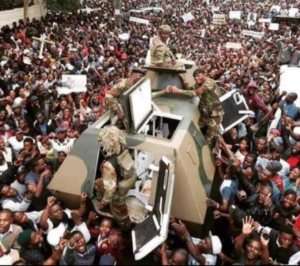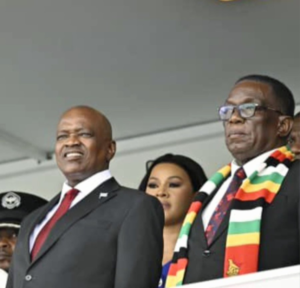ZIMBABWE’S OPPOSITION FIREBRAND SIKHALA CHALLENGES CONVICTION: A FIGHT FOR JUSTICE AMIDST POLITICAL TURMOIL

In a significant move that underscores the fraught political landscape of Zimbabwe, prominent opposition politician Job Sikhala has filed an appeal against his recent conviction and sentence, marking another chapter in the country’s long history of political contestation and struggle for democratic norms. Sikhala, a figure well-known for his fervent opposition to the ruling party, finds himself at the center of a legal battle that not only questions the limits of freedom of expression but also highlights the ongoing challenges faced by opposition figures in Zimbabwe.
Job Sikhala, a senior member of the Zimbabwean opposition, was convicted under section 31a(iii) of the Criminal Law (Codification and Reform) Act (Chapter 9:23), a statute that criminalizes publishing or communicating falsehoods prejudicial to the state. This conviction came with a fine of US$500, or alternatively, a two-month imprisonment should the fine not be paid. However, the legal repercussions for Sikhala did not end there. He was also handed a nine-month prison sentence, which was wholly suspended for five years on the condition that he does not commit a similar offense within this period. This sentence encapsulates the precarious balance opposition figures in Zimbabwe must maintain in their pursuit of political activism under an increasingly scrutinizing legal framework.
The backdrop to Sikhala’s conviction is as tumultuous as the charges themselves. Prior to this sentence, Sikhala endured a staggering 595 days of pretrial detention in Chikurubi Maximum Security Prison on charges of incitement of public violence. These charges were in connection with the brutal killing of Moreblessing Ali, an opposition activist whose death at the hands of her Zanu PF former boyfriend — now serving a 30-year jail term — sent shockwaves through the political and social fabric of Zimbabwe. Sikhala’s prolonged detention before trial highlights the contentious nature of pretrial detentions in Zimbabwe, often criticized by human rights organizations as a tool to suppress dissent and silence opposition voices.
Sikhala’s appeal is not just a legal procedure; it is emblematic of the broader struggle for political freedom and the right to dissent in Zimbabwe. His case brings to the forefront the critical question of how laws are applied and interpreted, especially those pertaining to freedom of speech and political expression. The fine line between safeguarding state security and suppressing political opposition is one that Zimbabwe has grappled with for decades, and Sikhala’s situation is a poignant reminder of the complexities involved.
The opposition politician’s appeal also raises important questions about the judiciary’s independence and the role it plays in the political life of Zimbabwe. As the appeal process unfolds, it will undoubtedly be watched closely by both national and international observers as a barometer of the state’s tolerance for political pluralism and dissent. Sikhala’s fight is not his alone; it is reflective of the broader battle for democratic rights and freedoms in a country where political tensions have often boiled over into conflict.
As Zimbabwe continues on its path towards a future marked by hopes for greater political openness and democracy, the outcome of Sikhala’s appeal will likely resonate far beyond the confines of the courtroom. It stands as a testament to the resilience of those who dare to challenge the status quo, and a litmus test for Zimbabwe’s commitment to upholding the principles of justice and human rights. In this intricate dance of power, law, and politics, the stakes are high not just for Job Sikhala but for the very soul of Zimbabwe itself.



